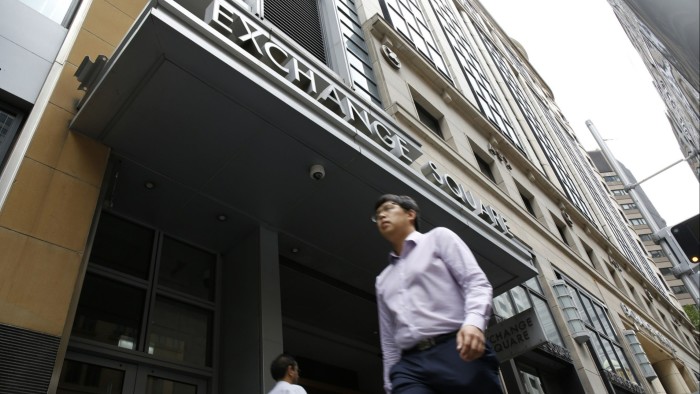BlackRock ramps up price war in Australia as it slashes fees

Simply sign up to the Exchange traded funds myFT Digest -- delivered directly to your inbox.
Latest news on ETFs
Visit our ETF Hub to find out more and to explore our in-depth data and comparison tools
BlackRock has aggressively cut fees on two of its exchange traded funds in Australia, just a month after it lost its position as the second-largest ETF provider in the country.
The move provoked an immediate response from BetaShares which responded a day later by cutting the annual management fee for the BetaShares Australia 200 ETF by 3 basis points from 0.07 per cent to 0.04 per cent.
BetaShares’ decision means its product is once again cheaper than the iShares equivalent. The annual management fee for the BlackRock iShares S&P/ASX 200 ETF has been reduced from 0.09 per cent to 0.05 per cent.
BlackRock has also slashed the annual rate for its iShares Core Composite Bond ETF from 0.15 per cent to 0.1 per cent, according to the fact sheet.

This article was previously published by Ignites Asia, a title owned by the FT Group.
BlackRock’s decision to slash fees in an attempt to undercut rivals also poses a challenge to US passive fund giant Vanguard.
Vanguard, the world’s second-largest asset manager and Australia’s largest ETF provider, currently charges a 0.1 per cent annual rate for its Vanguard Australian Shares Index ETF, which tracks the S&P/ASX 300 Index. The fund holds A$12.5bn in assets, more than twice the size of its next largest rival in the category.
While the US fund giants had for years enjoyed their positions as first and second largest in the local market, BetaShares disclosed last month that it had become Australia’s second-largest ETF provider with A$24.7bn in assets, compared with iShares’ A$24.5bn.
The iShares S&P/ASX 200 ETF last year suffered a massive redemption of more than A$1bn.
Assets managed by Australia’s ETF industry rose to an all-time high of A$138.5bn at the end of January, after suffering their first annual decline last year since 2017. The industry has grown 5.1 per cent, or about A$6.7bn, year on year over the past 12 months.
BetaShares said in December that ETFs were the investment vehicle of choice for Australian investors last year amid volatile markets and a challenging global macroeconomic environment.
Consultancy Cerulli Associates said in December that Australia’s ETF market was “becoming more entrenched and diversified”, though the large number of ETFs now available may mean the priority “will now be consolidation of assets in existing products”.
*Ignites Asia is a news service published by FT Specialist for professionals working in the asset management industry. Trials and subscriptions are available at ignitesasia.com

Click here to visit the ETF Hub
Comments